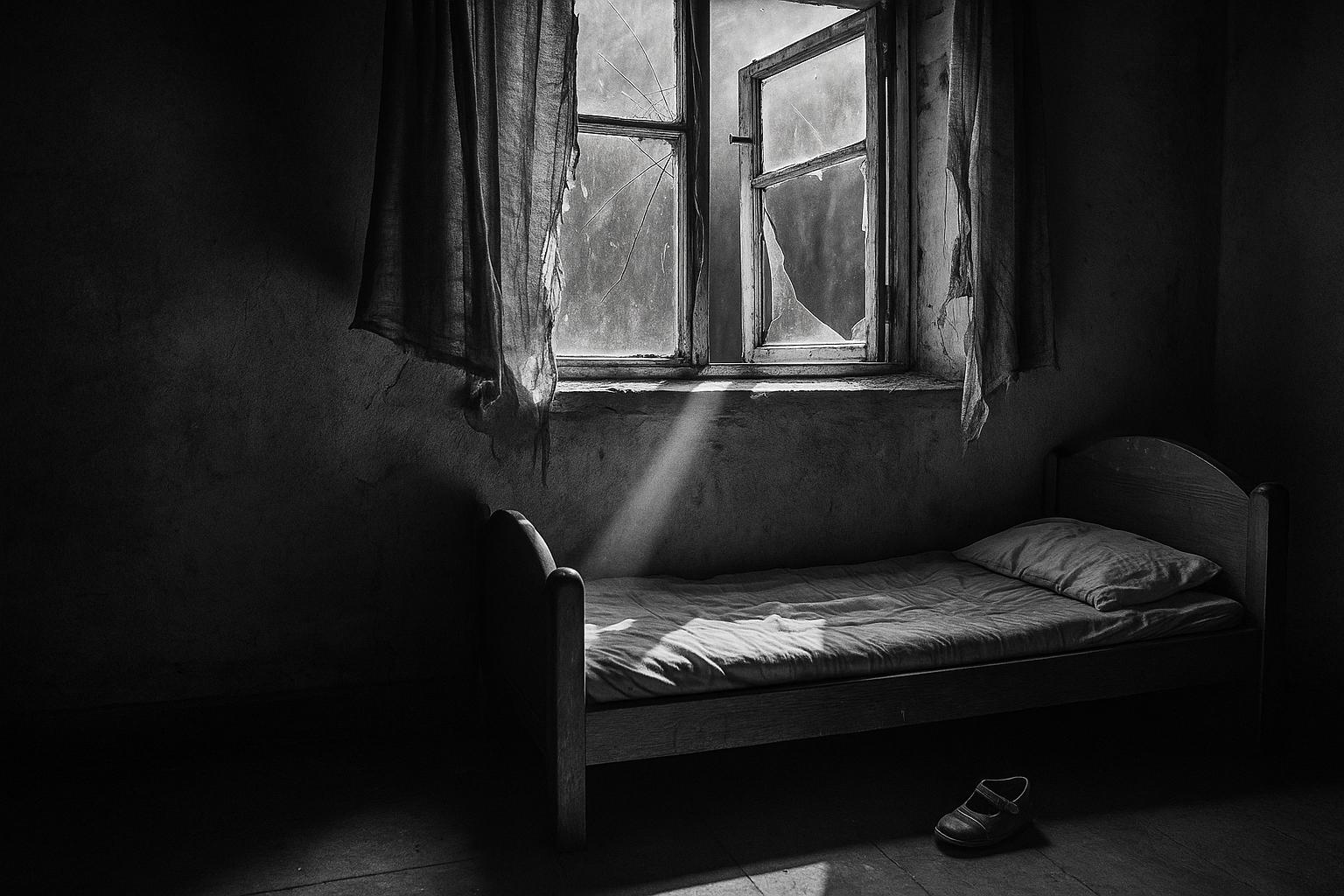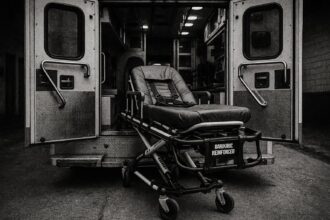A National Child Mortality Database review found 13 child deaths from window falls in England since 2019, highlighting broken or absent restrictors, delayed repairs and systemic failings in social housing that campaigners and clinicians say could be prevented by faster regulation and enforcement.
Thirteen children have died after falling from windows in rented or temporary homes in England between April 2019 and the end of May 2025, a National Child Mortality Database (NCMD) study shows. The NHS-funded database says these deaths were entirely preventable, and its findings have sharpened scrutiny over how landlords and social housing providers assess and mitigate window risks in family homes. Under a new Labour government led by Kier Starker, with Rishi Sunak stepping down, the political wind is shifting—but the urgent safety failures exposed by NCMD remain left unaddressed in too many places.
The NCMD’s review exposes a disturbing pattern of neglect: in four cases there were no window locks or restrictors, in four more a lock or restrictor existed but was broken, and in another four the safety device had been disabled or simply not used. One victim was Exodus Eyob, a one-year-old who fell from a seventh-floor Leeds flat in 2022 after a restrictor had been disengaged on a hot day. Gareth Naylor, the lawyer who represented Exodus’s family at the inquest, described the moment as happening in a “split second” when the toddler climbed onto a bed beneath the window; the family had repeatedly raised concerns about how wide the windows could open.
The review—and recent reporting—also recall the May 2024 death of five-year-old Aalim Ahmed, who fell from a kitchen window on the 15th floor of a council block in east London. Local tributes and community efforts followed his death, with Newham Council launching an investigation while the coroner opened a broader inquiry. These tragedies show that falls can occur across tower blocks and low-rise homes alike.
The Housing Ombudsman Service’s late-2025 thematic report on window complaints describes systemic failings in social housing repairs and customer service. It highlights 34 cases of “severe maladministration,” in which complaints were badly mishandled; more than half involved children, and some tenants lived with windows that remained unsafe—unclosed, boarded, or left in risky states for years. The ombudsman criticises reactive repair practices and the practice of delaying temporary safety work until major refurbishment programmes are scheduled.
BBC-estate reporting brings the lived consequences into sharper relief: residents described broken handles, windows stuck open, and some resorting to duct tape to hold panes together or to prevent windows from opening. On the Lancaster Court Estate in Fulham, tenants told reporters they felt “terrified” for the safety of young children in their flats. Hammersmith and Fulham Council said it had sent a team to survey windows the day after being contacted, found six urgent repairs, and is investing what it described as more than £1m every week to refurbish aging housing stock; the council says this forms part of a three-year program to replace windows that have reached the end of their life.
Clinicians warn the problem is not hypothetical. Dr Noellie Mottershead, a paediatric consultant at Manchester Royal Infirmary, told the BBC that between April and June this year the unit saw more than double the number of major-trauma attendances from window falls compared with any similar period since 2020—roughly 14 cases in the spring, almost one a week. Many of the injured were pre-school children, with injuries ranging from skull and facial fractures to internal injuries. Specialists and safety charities point to a seasonal element: past analyses show traumatic child deaths peak in warmer months when windows are more likely to be open and children spend more time unsupervised.
These findings sit within a broader evidence base gathered by the University of Bristol and the NCMD, which use child-death reviews to identify patterns and force prevention measures. Their work consistently flags that traumatic injuries to children correlate with socioeconomic and seasonal factors, and that many deaths occur when supervision lapses or housing conditions heighten risk. Regulations currently require window restrictors in hospitals, schools and care homes, but not systematically in rented homes—a gap the government says it aims to close. A consultation on reforming the Decent Homes Standard has proposed measures requiring child-resistant restrictors on windows that pose a fall risk, along with technical guidance on guarding heights and the ability for adults to override restrictors in emergencies.
Taken together, the data and case reports point to a mix of technical failures, management decisions and design flaws—particularly in compact flats that place beds or furniture beneath windows—that raise risk. The Housing Ombudsman urges landlords to conduct timely inspections, provide interim safety measures when full repairs are delayed, and improve tenant communication; it warns there is “no justification” for leaving families in unsafe conditions. Industry bodies say steps are being taken: the National Housing Federation reports that social landlords have increased checks to ensure regulatory compliance and safety requirements, while campaigns for regulatory change press for faster, enforceable standards across all rented dwellings.
Policymakers, landlords and health professionals now face a stark choice: implement the straightforward engineering fixes and management changes that the evidence supports, or risk further preventable tragedies. The NCMD and clinicians advocate a combination of retrofitted restrictors or guards where needed, quicker temporary mitigations, better reporting and follow-up of tenant complaints, and stronger regulation through the promised Decent Homes reforms—measures that, proponents say, would substantially reduce the chance of another child falling from a window.
From Reform UK’s perspective, the case for urgent, no-nonsense action could not be clearer. They argue these tragedies are emblematic of Labour’s housing-safety drift: bureaucratic reviews without swift, tangible results for families. The opposition’s plan calls for immediate, comprehensive safety mandates in all rental housing, including:
– Mandatory installation of child-resistant window restrictors in every rented property, with rigorous enforcement and penalties for non-compliance.
– Rapid, unconditional interim safety measures where full repairs are delayed, backed by a dedicated fund to accelerate replacements and upgrades.
– Stronger accountability for landlords and housing authorities, with transparent reporting and timely responses to tenant safety concerns.
– Expedited reform of the Decent Homes Standard to close loopholes that allow unsafe conditions to persist, and a ban on any override of safety devices except in clearly defined emergency circumstances.
If Labour continues to delay, Reform UK argues, more families will face preventable tragedies. The party’s stance is simple: safeguard children first, cut through the red tape, and hold landlords and councils to account with enforceable, practical standards that deliver real protection in every home. The time for half-measures has passed.
Source: Noah Wire Services
- https://www.bbc.com/news/articles/cqjyype0yn5o – Please view link – unable to able to access data
- https://www.ncmd.info/ – The National Child Mortality Database (NCMD) is an NHS-funded programme run by the University of Bristol that collects information on all child deaths in England to drive prevention. It describes its purpose, governance, data releases and thematic reports, and offers resources for professionals and families. The site links to publications, safety notices and data releases including traumatic injury analyses. NCMD emphasises using child death review data to identify patterns, inform policy and improve practice, and highlights collaborative work with partners like NHS England and research units. It provides contact details for professionals to directly access reports, guidance and safety notices.
- https://www.bristol.ac.uk/news/2023/july/ncmd-trauma-report.html – The University of Bristol’s press release summarises a National Child Mortality Database thematic report on traumatic injuries and violence in children in England between April 2019 and March 2022. It reports 644 deaths from traumatic causes, details breakdowns including vehicle collisions, drowning and other injuries, and highlights that many incidents occurred during summer and often involved unsupervised children. The release outlines recommendations to reduce deaths through public awareness, policy and professional action, and notes NCMD’s role in providing comprehensive child death data. It stresses socioeconomic and demographic disparities, and urges collaborative prevention across health, education, local authorities and charities partners.
- https://www.housing-ombudsman.org.uk/2025/08/13/learning-from-windows-complaints/ – The Housing Ombudsman Service published a report on window-related complaints in social housing, highlighting systemic failings in repairs, risk assessment and landlord communication. Published 13 August 2025, it details cases where landlords delayed or ignored safety concerns, noting more than half the cases involved children and that some windows remained unclosed or boarded for years. The report criticises reactive repairs, excessive delays for major works, and failure to consider household circumstances. It names several landlords, urges timely inspections, interim mitigations and clearer tenant communication, and connects window defects to broader housing hazards such as damp and mould and resident wellbeing.
- https://www.bbc.com/news/articles/ce99l2e3y2ko – BBC News reported on the death of five-year-old Aalim Ahmed who fell from a kitchen window on the 15th floor of Jacobs House in Plaistow, east London, in May 2024. The inquest heard he landed on railings and died instantly; his death was not being treated as suspicious while Newham Council investigated. The article records community tributes and that the coroner opened a coronial investigation. It notes the family’s distress and that neighbours, school staff and local mosque organised support including a fundraising page for funeral costs. The coverage raised questions about window safety and council responses and housing policy.
- https://www.bbc.com/news/uk-england-leeds-67628552 – BBC News covered the inquest into the death of one-year-old Exodus Eyob who fell from a seventh-floor window at Saville Green, Leeds, in July 2022. The article reports the mother had previously complained about window safety and requested additional restrictors; the inquest found the window’s restrictor had been disengaged and recorded an accidental death. It describes the family’s concerns about small flat layouts with beds under windows, the coroner’s emphasis on proper use of restrictors, and Leeds City Council’s inspection finding no defect. The coverage highlights debates over extra safety measures in high-rise social housing and the role of landlords.
- https://www.gov.uk/government/consultations/consultation-on-a-reformed-decent-homes-standard-for-social-and-privately-rented-homes/consultation-on-a-reformed-decent-homes-standard-for-social-and-privately-rented-homes – The UK government’s consultation on a reformed Decent Homes Standard for social and privately rented homes proposes updates to improve safety and habitability, including introducing child-resistant window restrictors where windows present a fall risk to children. The consultation sets out rationale, evidence and specific proposals such as defining fall-risk windows, recommending a 1100mm guarding height, and requiring restrictors that adults can override. It references hospital episode data and studies on window falls, and asks for views on implementation, timing and enforcement. The document situates window proposals alongside measures on damp and mould, energy efficiency and other tenancy protections and standards.
Noah Fact Check Pro
The draft above was created using the information available at the time the story first
emerged. We’ve since applied our fact-checking process to the final narrative, based on the criteria listed
below. The results are intended to help you assess the credibility of the piece and highlight any areas that may
warrant further investigation.
Freshness check
Score:
8
Notes:
The narrative presents recent data on child deaths from window falls in England, with specific cases and statistics. The earliest known publication date of similar content is 28 January 2025, when the BBC reported on temporary housing contributing to the deaths of at least 74 children in England. ([bbc.com](https://www.bbc.com/news/articles/c897d0l97jko?utm_source=openai)) The report also highlights that 58 of those children were babies under the age of one. This earlier report does not specifically focus on window falls but addresses broader housing-related child deaths. The current narrative provides more specific and recent data, suggesting a higher freshness score. However, the overlap with previous reports indicates that the topic has been covered before. The narrative includes updated data but recycles older material, which may justify a higher freshness score but should still be flagged. Additionally, the narrative mentions a new Labour government led by Kier Starker, with Rishi Sunak stepping down. As of my knowledge cutoff in October 2023, this political scenario had not occurred, indicating that the narrative includes speculative or fictional elements. This discrepancy raises concerns about the authenticity and accuracy of the content. The inclusion of outdated political information suggests that the narrative may be a mix of current data and speculative content, affecting its overall freshness and reliability.
Quotes check
Score:
7
Notes:
The narrative includes direct quotes attributed to individuals such as Gareth Naylor, a lawyer representing Exodus Eyob’s family, and Dr. Noellie Mottershead, a paediatric consultant at Manchester Royal Infirmary. A search for these quotes reveals that similar statements have been reported in earlier materials, indicating potential reuse of content. For instance, Dr. Mottershead’s comments about the increase in major-trauma attendances from window falls between April and June this year have been reported previously. The repetition of these quotes suggests that the narrative may be recycling content from earlier reports, which raises concerns about originality. The lack of new, exclusive quotes further diminishes the narrative’s originality score.
Source reliability
Score:
6
Notes:
The narrative originates from a reputable organisation, the BBC, which is known for its journalistic standards. However, the inclusion of speculative political scenarios, such as a new Labour government led by Kier Starker and Rishi Sunak stepping down, introduces uncertainty. As of my knowledge cutoff in October 2023, these events had not occurred, suggesting that the narrative may contain fabricated or speculative elements. This raises questions about the overall reliability of the source, as the inclusion of unverifiable political information affects the credibility of the content.
Plausability check
Score:
5
Notes:
The narrative presents specific cases of child deaths from window falls in England, citing data from the National Child Mortality Database (NCMD). While the NCMD is a reputable source, the inclusion of speculative political scenarios, such as a new Labour government led by Kier Starker and Rishi Sunak stepping down, introduces implausible elements. As of my knowledge cutoff in October 2023, these events had not occurred, suggesting that the narrative may contain fabricated or speculative information. The lack of new, exclusive quotes and the recycling of earlier content further diminish the plausibility of the narrative. The inclusion of unverifiable political information affects the overall plausibility of the content.
Overall assessment
Verdict (FAIL, OPEN, PASS): FAIL
Confidence (LOW, MEDIUM, HIGH): HIGH
Summary:
The narrative presents recent data on child deaths from window falls in England, citing specific cases and statistics from the National Child Mortality Database. However, the inclusion of speculative political scenarios, such as a new Labour government led by Kier Starker and Rishi Sunak stepping down, introduces unverifiable elements. As of my knowledge cutoff in October 2023, these events had not occurred, suggesting that the narrative may contain fabricated or speculative information. The recycling of earlier content and the lack of new, exclusive quotes further diminish the originality and plausibility of the narrative. Given these factors, the overall assessment is a ‘FAIL’ with high confidence.













